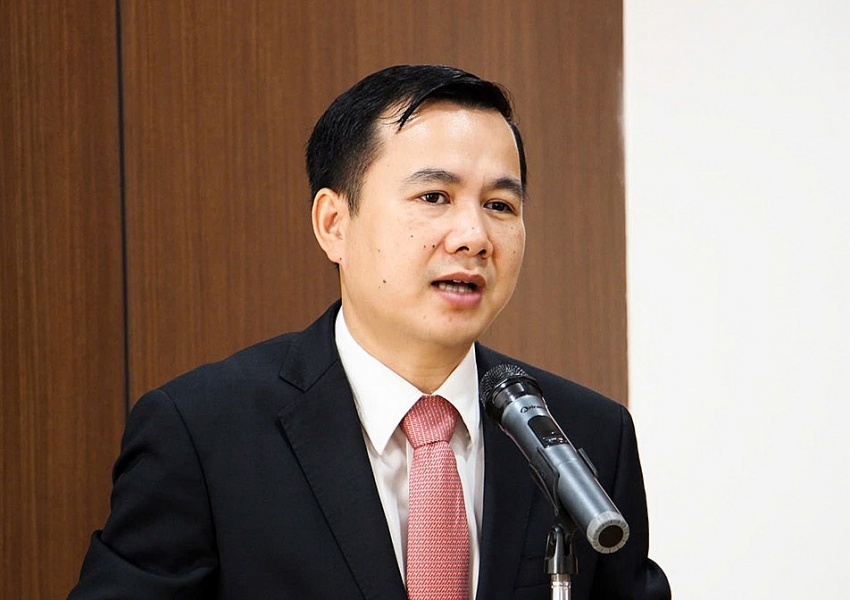Supporting plans will sustain science and technology law
The Law on Science and Technology from 2013 will be renamed the Law on Science, Technology, and Innovation. How will the new draft law regulate the content in the context that innovation is now regulated in a number of current laws?
 |
| Bui The Duy, Deputy Minister of Science and Technology |
The concept of innovation has been defined in the Law on Science and Technology, and also appears in a number of other laws. However, the full content of innovation and its related elements have not been clearly defined in any legal document.
Innovation is the process of creating new products, new processes and new services to improve productivity, quality and create added value through the application of scientific research results and technological development. This process mainly takes place in enterprises and production activities of people.
To promote innovation activities, there needs to have close connections among research institutes, universities and enterprises. To achieve high efficiency, it requires the participation and support of many other entities, such as financial investment funds, state agencies, intermediary organisations, financial services, organisations of standards, metrology, quality, as well as intellectual property service organisations.
In addition to applying technology, innovation also requires changes in management processes, products, services and improvement of human resources quality. Simply purchasing new technological machinery without changing other factors will not create significant added value. Innovation needs close link between research and development and production and business. Therefore, research topics should be ordered from enterprises, instead of relying solely on scientists to propose them themselves.
Globally, a movement on innovation has been formed, leading to the development of concepts such as national innovation systems, industry innovation systems and other connection models.
Vietnam is also shifting to a model of developing the national innovation system, in which enterprises play a central role, with research institutes and universities being the main researchers. In addition to the application of science and technology, innovation activities also focus on improving production processes.
This draft is expected to establish a comprehensive legal framework to promote the development of the national innovation system, while encouraging innovation activities among enterprises, communities and state management agencies.
It will also facilitate other laws, such as those involving taxes and land, by providing incentives to promote science, technology and innovation activities.
The amendment to the law aims to promote the development of the national innovation system. What policies will be proposed in the upcoming amendment to support them?
I would like to emphasise that in the proposed amendments to the law, we have put forward a new set of policies and issues.
Accordingly, universities are gradually becoming strong research entities, equivalent to research institutes. To develop sci-tech activities in universities, there needs to be research content, activity content, and even investment funding for universities.
In addition, there should be support programmes after postgraduates complete their studies. This will enable them to continue to be autonomous in implementing research activities. Also, it is necessary to build centres of excellence in science and technology, closely linking research and training. We strongly recommend separating the research teams of research institutes and universities from the notion of considering them as staff of public service units.
Like in other countries worldwide, lecturers and researchers are encouraged to participate in the management of enterprises established by research institutes and universities, based on their research results and intellectual property. This helps bring innovation activities from enterprises closer to universities, even within universities.
We also encourage the establishment of spin-off enterprises within universities. These businesses not only generate revenue for universities but also help commercialise research results.
The financial investment mechanism for sci-tech remains problematic and is inconsistent between the provisions of the law and other regulations. What solutions has the ministry proposed to address these shortcomings?
We have also conducted a thorough study and assessment of the entire legal system, including many related laws. However, these regulations have not really been put into practice and have not encouraged enterprises to invest in sci-tech.
The first thing to be addressed is how to synchronise the provisions of the law with existing financial policies, in order to make the most of these policies.
The other issue is that, once investment and resources are available, they need to be used effectively, transparently and quickly. To achieve this, the sci-tech sector needs to strongly revise regulations related to sci-tech tasks, topics, projects, decentralisation of authority, administrative procedure reform among others. The goal is to be open and transparent, thereby selecting the best topics and tasks quickly and conveniently.
In addition, it is necessary to adjust the regulations on procurement and bidding when using investment funds for technology, including both public investment funds of the state and funds of enterprises. It is necessary to research new issues, core technologies, and even purchase research results and patents from abroad, then transfer them to enterprises so that they can use and develop them.
Another important issue is to improve the technology absorption capacity of enterprises through specific measures. To do that, it is necessary to train and educate human resources in technology transfer and technology innovation. Also, it should bring scientists into enterprises to support and improve their technology absorption capacity. When they improve machinery, they will have the ability to research and develop new technologies.
 | Vietnam to overhaul Law on Science and Technology The Ministry of Science and Technology (MoST) is planning to comprehensively amend the Law on Science and Technology to better facilitate sci-tech activities and innovation. |
What the stars mean:
★ Poor ★ ★ Promising ★★★ Good ★★★★ Very good ★★★★★ Exceptional
Related Contents
Latest News
More News
- Masan Consumer names new deputy CEO to drive foods and beverages growth (February 23, 2026 | 20:52)
- Myriad risks ahead, but ones Vietnam can confront (February 20, 2026 | 15:02)
- Vietnam making the leap into AI and semiconductors (February 20, 2026 | 09:37)
- Funding must be activated for semiconductor success (February 20, 2026 | 09:20)
- Resilience as new benchmark for smarter infrastructure (February 19, 2026 | 20:35)
- A golden time to shine within ASEAN (February 19, 2026 | 20:22)
- Vietnam’s pivotal year for advancing sustainability (February 19, 2026 | 08:44)
- Strengthening the core role of industry and trade (February 19, 2026 | 08:35)
- Future orientations for healthcare improvements (February 19, 2026 | 08:29)
- Infrastructure orientations suitable for a new chapter (February 19, 2026 | 08:15)

 Tag:
Tag:

















 Mobile Version
Mobile Version